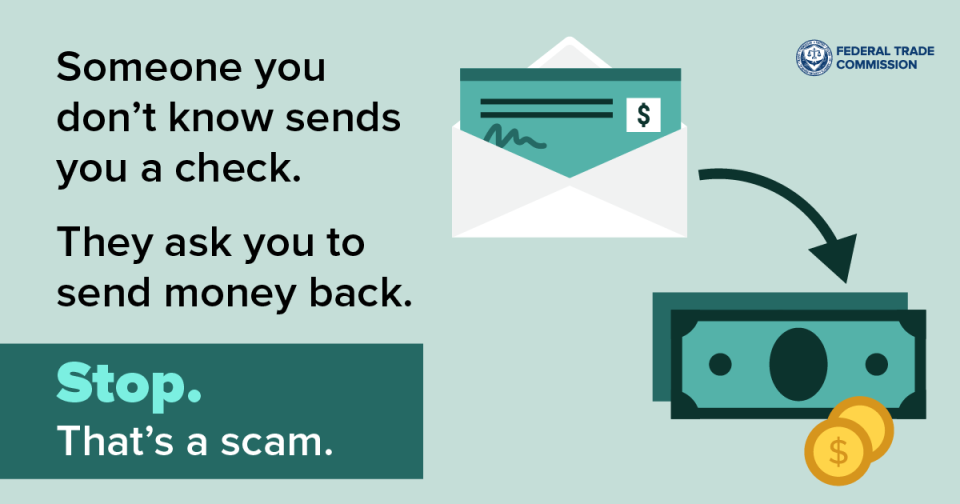Did you get a message on social from an “artist” asking to pay you for permission to paint your photo? It’s a scam. They don’t want to pay you — they want to take your money.
Young adults report this scam begins with a direct message on social media from someone who says they like your photo and want to pay you thousands of dollars to use it. Next, they’ll send you a check. They’ll tell you to deposit it, take some money out to send to the artist for supplies, and keep the rest. They may promise to reimburse any money you send back. (But they never will because it's a scam.)
While the check may look real and the funds may initially show up in your bank account, the check’s fake. By the time the bank realizes it, you’ll be out the money you sent the scammer and owe the bank any money you withdrew.
How do you spot this scam? Here’s the takeaway: If someone you don’t know sends you a check and asks you to send money back to them or to someone else, it’s a scam. It’s best to only deposit checks from people you know and trust.
Learn more about how to spot fake check scams.
If you spot a scam, report it at ReportFraud.ftc.gov. And if you think you’ve paid a scammer, here's what to do.


Thank you for the info and heads up!
Wow. Taking advantage of youth, naivety, vanity, social media with bank fraud all in one. Thank you for informing. This can ruin someone's banking and credit ability for years, if not worse. Seen it happen.
Facebook Marketplace vehicle scam , they post vehicle for sale real cheap and it be new model .They say moving to new state and need sell quick or they say posting for my aunt or uncle contact them by email . They set up a fake Ebay shipping .It look real and look like it come from Ebay but it not it scam . You report it to Facebook and it come back not against community standards .But it scam and i do't understand why they don't see it . And they new scam where they scammer says your daughter messed up my drug deal , and you must pay or we hurt her and they put her on phone and it sound like her .I watched vidio of women who was hurt by this .
Yes I have had this happen to me on tik Tok can't remember the name of the person because I no longer use any type of social media account. And I am having other concerns as well that I refuse to speak on without a lawyer!
This happened to me at Publish clearing house. So please be care fully all young people. I did report it here. I hope this helps a lot of people. they also sent me a check , Im was smart enough to look in to it, If never sure call the company first, to find out if true or not.
I am new here and have no experience but will learn along the way.